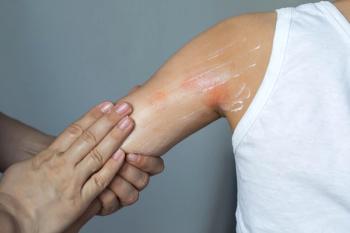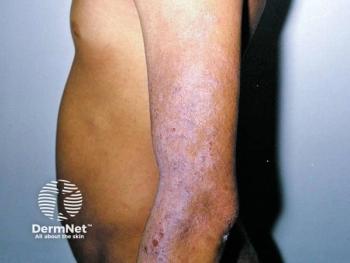
Talking to children
If we stand in front of children, we are virtually intimidating giants looming over them.
I have never told a kid he or she was about to get a shot; I have, however, told them about an upcoming "mosquito bite" or "pinch." I often give the child a small pinch to show them what it will feel like when I give the actual "pinch." Try this for your next intralesional shot, even in the scalp: Tell the child they are going to get a couple of pinches just so they will know what the "mosquito bite" will feel like. Make sure that a parent or a nurse is blocking the child's line of vision to the syringe, then tell the child they are going to feel the first pinch, and give them the injection. Very often, the child, while terribly afraid of injections, is not afraid of a "pinch," and will hardly react, or will even say "the pinch wasn't that bad." Conditions such as alopecia areata may need recurrent treatment; this will greatly attenuate the child's fear in the future. If you think that these simple accommodations to help a child through his or her fear don't really make much of a difference, just try it on a few 4- to 7-year-olds, and drop me a line.
It is also important to never show the hypodermic needle to a child. I tend to palm it and, again, have a nurse or parent position themselves so that the child never actually sees the needle.
I offer for your consideration the following scenario of the first interaction with a new pediatric patient (assume the child is about 4 to 7 years old):
These are simple and not particularly time-consuming habits to develop in your interaction with children. But simple things often mean a lot.
Lawrence A. Schachner, M.D.
Chairman and Professor of Dermatology, Professor of Pediatrics, Director, Division of Pediatric Dermatology, University Of Miami School of Medicine.
Newsletter
Like what you’re reading? Subscribe to Dermatology Times for weekly updates on therapies, innovations, and real-world practice tips.












